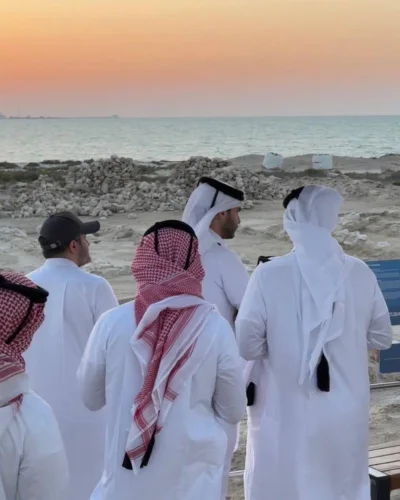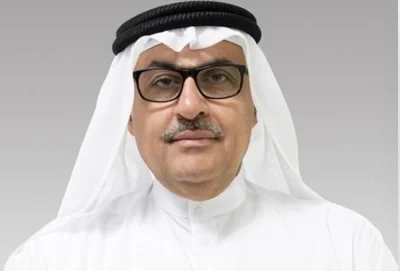The State of Qatar and the Principality of Monaco underlined that the celebration of the United Nations on April 6 of the International Day of Sport for Development and Peace, which was proclaimed by the UN General Assembly on August 23, 2013 in its resolution (67/296), underscores the power of sport to drive social change, community and human development, and to foster peace and understanding both in developed and developing countries.
This came in an article written by HE the Permanent Representative of the State of Qatar to the United Nations Ambassador Sheikha Alya Ahmed bin Saif al-Thani, and the Permanent Representative of the Principality of Monaco Isabelle Picco, and published on the website of the United Nations Chronicle magazine.
The State of Qatar and the Principality of Monaco said that sport has been on the United Nations agenda since 1993, when the General Assembly adopted its first resolutions entitled “International Year of Sport and the Olympic Ideal” (resolution 48/10) and “Observance of the Olympic Truce” (resolution 48/11).
They noted that every two years, the Assembly adopts a resolution on “Sport as an enabler of sustainable development” and every other two years, a resolution on “Building a peaceful and better world through sport and the Olympic ideal”, ahead of the Olympic and Paralympic Games.
They said that the contribution of sport was further recognised in the Declaration on the 2030 Agenda for Sustainable Development, adopted by the General Assembly in resolution 70/1 of 25 September 2015, which emphasises that “sport is an important enabler of sustainable development”. The Declaration also recognises “the growing contribution of sport to the realisation of development and peace in its promotion of tolerance and respect and the contributions it makes to the empowerment of women and of young people, individuals and communities as well as to health, education, and social inclusion objectives”.
Unfortunately, the article pointed out, this years celebration comes in the devastating wake of the Covid-19 pandemic, with severe pressure placed on public health systems, emergency services and the global economy. The United Nations Secretary-General, Antonio Guterres, has stated that “our world is facing an unprecedented threat, and the United Nations is facing one of the biggest challenges in our history.”
The permanent representatives of the State of Qatar and the Principality of Monaco believed that the global sports landscape has also been altered significantly, from playing games behind closed doors to cancelling events, with the Tokyo 2020 Olympics postponed until 2021. The pandemic has shaken the sports world, with social distancing being the best way so far to protect oneself and others.
HE the Permanent Representative of the State of Qatar to the United Nations Ambassador Sheikha Alya Ahmed bin Saif al-Thani, and the Permanent Representative of the Principality of Monaco Isabelle Picco added in the article that in the context of the global pandemic, it is important to note that the World Health Organization advocates 30 minutes of daily physical activity in order to stay healthy, boost ones immune system and combat stress and depression.
“Moreover, we should not forget that sport is a versatile instrument to prevent conflict and build peace, as it builds relationships across social, economic and cultural divides and creates a sense of shared identity and fellowship among groups that might otherwise be inclined to view each other with distrust and hostility. The universal language of sport helps fight radicalisation and prevent violent extremism that is conducive to terrorism. It is also a very powerful tool for dialogue and reconciliation,” they added.
“With so much progress in the last few years, we must keep on. By raising awareness of the role of sport in health, sustainable development and peace, the International Day can help increase much needed global solidarity. Sport is uniquely equipped to unite. It has unlimited potential to positively heal the world we live in now, and the world we are building for the future. More than ever, the power of sport can contribute to the global efforts to make the Sustainable Development Goals (SDGs) a reality,” they stressed.
The article underline that the State of Qatar, host of the 2022 FIFA World Cup, is committed to delivering a sustainable World Cup tournament and showcasing innovative solutions. Efforts are in place to address climate change, workers welfare and rights, and business practices. They noted that Qatar has often stressed its intention that the World Cup benefit the entire Mena (Middle East and North Africa) region and specifically support youth with access to education, research, social, cultural, technological and economic opportunities.
“A number of initiatives have been launched for the purpose of unlocking this potential. For instance, Generation Amazing leverages the power of football to instigate social change, break down barriers, increase access to sport and enhance community integration in line with the SDGs. From Brazil’s Atlantic coast to the highlands of Nepal, Generation Amazing, in collaboration with United Nations partners and civil society, is building sporting facilities and running programmes that focus on developing leadership skills and civil engagement, and nurturing life skills for thousands of girls and boys in underprivileged communities,” they added.
“We also view the World Cup as a supporting platform for the talented and growing entrepreneurial and innovation community of the region. Financial and technical mentoring from worldwide experts is provided to young entrepreneurs to develop creative and cost-effective ideas, including innovations that will lead to more sustainable outcomes in the design, construction and operational stages of the World Cups infrastructure delivery. Most importantly, through education and research, the organisers are energising sectors that will contribute to more diversified, forward-looking economies across the region. Pioneering disciplines such as behavioural psychology are being introduced, using research to improve processes and policy outcomes,” they said.

..


